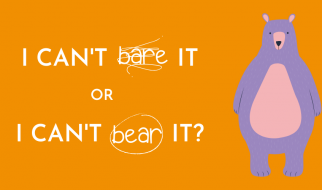Let?s be right upfront about a podcast script. A successful podcast script doesn?t have to mean a word-by-word scripted episode in which the host(s) is simply reading from a written page or digital screen.
Take, for example, any podcast where a guest is interviewed. A script probably includes a series of initial questions you are planning to ask your guest. Keep in mind, however, that a sharp host and interviewer may have to improvise questions based on the guest?s responses. The follow-up questions may lead the host down a rabbit hole where improvisation and sensing the flow of the conversation are indeed critical skills.
Let?s examine what type of podcast script is right for you. The variables are the format of your podcast ? guests being interviewed, a panel format, alone host narration and any combination of these formats.
What?s the word
First, as a podcast host/owner you have to assess your style. If you have a laid back hosting style and tend to improvise a lot, you can draft a rough outline that includes a few reminders of what to say and where to say it. If your podcast features frequent guest interviews and you enjoy shooting from the hip, a simple list of questions for your guest might be all the scripting you need.

But if the thought of ad-libbing frightens you, or you want to create a feeling of more structure to your show, you can create your script accordingly.
Second, evaluate your specific communication style. Are you, for instance, someone who formulates thoughts, ideas and concepts, by talking them out? Or are you someone who is more reflective and feels comfortable thinking and writing before communicating them verbally.
Some people will feel more comfortable with structure while others feed off the improvisational nature of extemporizing. Make sure your show?s style isn?t at odds with the way you communicate. Try to focus on what you do consistently well.
Keeping it casual
Again, each of these podcast script styles exists along a spectrum, and you can amplify or simplify whichever one you choose.
There?s truly no right or wrong approach, but again your script style should match your communication style and your podcast format.
The bullet point format is one of the most common outlines podcast hosts use. This style works seamlessly with podcasts that include guest interviews or freestyle banter with a panel of co-hosts. This method also doesn?t require the depth of preparation needed for a word-for-word script. However, bullet points can act as a checklist to ensure that key points or messages are always included in the show. Even with guests on a podcast where there exists an informal flow to the conversation, a host needs bullet points at the minimum to ask prepared questions, explore topics the guest or the host believe are vital and refer to reminders about topics to avoid.
The strength of the bullet point format is its flexible structure but its potential downside is its looseness because that quality can lead to more opportunity to forget important points, babble, get side-tracked and lose focus.
The detailed episode outline can act as the connective tissue between bullet points and the word-for-word script. A detailed outline typically includes a podcast intro, sponsor ads, music jingles, an outro with closing remarks, and segues where appropriate.
The detailed episode outline is a natural fit with a co-host, Interview-style podcasts because it provides flow and structure to an episode, while still generating that off-the-cuff vibe.
Word for word
Verbatim scripts can be intimidating and require a lot of work before the podcast is even recorded. The challenge to a word-for-word script is to make it sound conversational and even improvisational.
When writing a word-for-word podcast script, focus on keeping it conversational. Word-for-word scripts are like walking a tightrope. You always have to carefully balance being prepared and still sounding chatty and even intimate. The ever-present danger is that reading a podcast script can lead to a flat, monotone delivery.

Word-for-word scripts require a rehearsal so that the podcaster can identify words that are hard to pronounce, run-on sentences and flaws in the logic of the script. Moreover, writing a word-for-word podcast script is similar to writing a speech, so doing some research into speech writing skills is a worthwhile exercise. For example, speeches often start sentences with the word AND ? something we?re told expressly not to do in writing ? because the emphasis on AND at the beginning of a spoken sentence can signal a key point to the listeners.
Also, watch for sentence length. People actually hold their breath during speaking, so long, drawn-out sentences mean that the podcast host?s voice will diminish in volume and force at the end of those long sentences. Keep sentences to 11 words or less. And learn to take a breath between sentences or short paragraphs.
An essential part of a word-for-word script is the speech notes on the script. These notes include pauses, changes in word or phrasal emphasis, laughs, sighs, sarcasm and other dramatic effects. These notes invigorate your podcast script so it feels natural. Make sure to read your podcast script aloud with your script notes so they sound conversational and not forced.
Word-for-word podcast scripts are ideally suited for dramas, true-crime shows, single-host podcasts and any podcast with a hefty serving of factual information ? such as scientific, medical or historical ? where accuracy is paramount.
Tips and best practices
Podcasting is an audio medium and creating visual images is the job of the podcaster. Some podcasts accomplish that visualization through sound ? like the sound of a bird singing or a plane taking off. Center the listener in your environment. Let them see what you see by vivid descriptions using words that express color, shading, lighting, sonic background noise and movement.
For some podcasters, a set running time for each topic is helpful. The duration is an approximate estimate of how long you should spend on a segment of your script so that you communicate your content while still budgeting time for the remaining segments.
Finally, transitions words and phrases will enable podcasters to seamlessly move between discrete segments and segue to the final call to action to subscribe, write a review or donate.
Scripting the segments of your podcast
Even if you don?t choose to have a word-for-word script for your entire show, scripting certain segments is a great way to add structure to your show, even if the rest of the episode is largely spontaneous. Below are the basic elements of any podcast script, regardless of format.
Sponsor message
Sometimes sponsors will give hosts a script to read and other times the host will be able to craft their own sponsor message.
Intro
Here, you welcome your listeners, explain the episode they are about to hear and, of course, say the name of your podcast.
Lead-in to topic
In essence, provide your listeners with advance notice of what this topic entails.
Transition
In podcasting, music often serves as a segue but you can also use a sound effect or even a familiar phrase.
Outro/Call to action
Sometimes the outro includes a very brief summary of the current episode and then a glimpse into the next episode. Finally, a podcaster should always include a call to action for listeners.
That call to action can include: subscribing to the podcast, donating to the podcast, sending feedback, following the podcast on social media, signing up for a contest, leaving a review (favorable, of course) and even be a guest or a contributor.
The outro music then carries the listener to the finish.
New podcasters will often spend a lot of time, energy and money on the best microphones and audio software and often develop a script as a last-minute detail.
A podcast script is an essential element to podcast success and requires thought, attention and focus. There are essentially two key steps. First, ensure that your podcast script format ? bullet-point, detailed outline or word-for-word match your podcast topic and structure. Second, ensure that your script matches your communication style.
As usual, the internet is a valuable resource for podcast script formats and helpful advice. Discover Pods, for example, offers a comprehensive guide to starting a podcast that includes everything from planning to scripting to mixing under its PODCAST RESOURCES tab.


